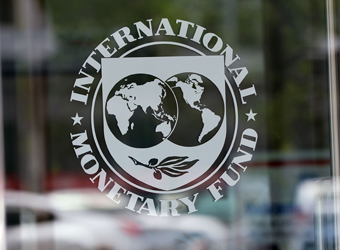The International Monetary Fund says Egypt’s economic growth is driven by a “broad-based” recovery across industries, a sign that reform measures such as floating the currency are starting to pay off even as inflation still remains high.
Gross domestic product expanded at an annual rate of 4.6 in the first half of 2017, the fastest pace in seven years, to the surprise of some economists who predicted slower growth as record-high interest rates and rising consumer prices weigh on confidence. The IMF expects the economy to grow 4.5 percent in 2018 from 4.1 percent this year.
“The reemergence of growth as we see it is broad-based; various sectors of the economy are benefiting from it including export, including tourism,” Jihad Azour, head of the IMF’s Middle East and Central Asia Department, said in an interview in Dubai. “Remittances are improving as well as other traditional sectors.”
Egyptian authorities removed most currency restrictions a year ago to end a dollar shortage crippling economic activity. The pound has since lost half of its value, causing inflation to accelerate to more than 30 percent. But the devaluation has also made Egyptian exports cheaper. Non-oil exports and tourism grew about 16 percent in the fiscal year that ended June 30, suggesting a gradual improvement in the economy is taking hold.
Azour said the plan is for Egypt to capitalize on the “improvement in competitiveness” to make its economy more reliant on exports for growth.
“And this is in fact part of the policy package that the government in Egypt has put forward and the fund has supported,” he said.
Source: Bloomberg


